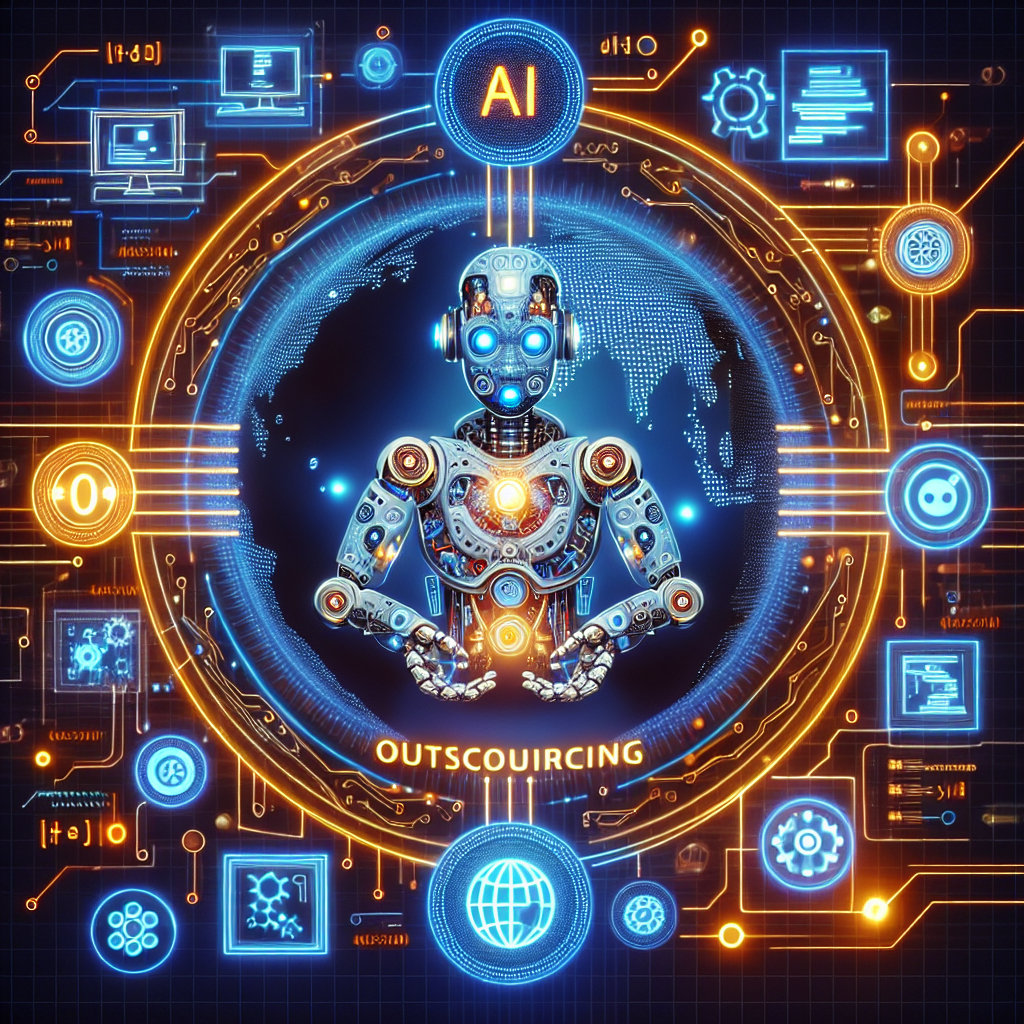In recent years, artificial intelligence (AI) has become an integral part of many industries, from healthcare to finance to retail. As businesses continue to adopt AI technologies, the demand for AI outsourcing services has also increased. Outsourcing AI projects allows companies to access specialized expertise, reduce costs, and accelerate development timelines. In this article, we will explore the top trends in AI outsourcing and address some frequently asked questions about this growing industry.
Trend 1: Increased Focus on Data Privacy and Security
With the rise of data breaches and privacy concerns, companies are placing a greater emphasis on data security when outsourcing AI projects. AI outsourcing providers are now required to comply with stringent data protection regulations, such as the General Data Protection Regulation (GDPR) in Europe and the California Consumer Privacy Act (CCPA) in the United States. Companies are also investing in secure data transmission protocols and encryption technologies to safeguard sensitive information.
Trend 2: Adoption of Cloud-based AI Solutions
Cloud computing has revolutionized the way companies deploy AI solutions. Cloud-based AI platforms offer scalability, flexibility, and cost-effectiveness, making them an attractive option for businesses looking to outsource AI projects. Cloud providers like Amazon Web Services (AWS), Microsoft Azure, and Google Cloud Platform offer a wide range of AI services, including machine learning, natural language processing, and computer vision. By leveraging cloud-based AI solutions, companies can access state-of-the-art technologies without the need for extensive infrastructure investments.
Trend 3: Focus on Explainable AI
Explainable AI, also known as XAI, is gaining traction as companies seek to understand and interpret the decisions made by AI algorithms. With the increasing complexity of AI models, it has become essential to provide explanations for AI predictions and recommendations. Outsourcing providers are now developing AI solutions that are transparent, interpretable, and accountable, allowing businesses to trust and validate the decisions made by AI systems.
Trend 4: Rise of AI Automation
AI automation is transforming business processes across industries, from customer service to supply chain management. Outsourcing providers are developing AI-powered automation solutions that streamline repetitive tasks, improve efficiency, and reduce operational costs. Robotic process automation (RPA) tools, chatbots, and virtual assistants are being deployed to automate workflows and enhance productivity. As companies look to optimize their operations, AI automation is becoming a key focus area for outsourcing initiatives.
Trend 5: Emphasis on Ethical AI
Ethical considerations are becoming increasingly important in the development and deployment of AI technologies. Outsourcing providers are now incorporating ethical guidelines and principles into their AI projects, ensuring that data usage, algorithmic bias, and decision-making processes adhere to ethical standards. Companies are also seeking AI outsourcing partners who prioritize diversity, equity, and inclusion in their AI solutions, promoting fairness and transparency in the development process.
FAQs about AI Outsourcing
Q: What are the benefits of outsourcing AI projects?
A: Outsourcing AI projects allows companies to access specialized expertise, reduce costs, accelerate development timelines, and focus on core business activities. Outsourcing providers bring in-depth knowledge and experience in AI technologies, enabling companies to leverage state-of-the-art solutions without the need for extensive in-house resources.
Q: How do I choose the right AI outsourcing provider?
A: When selecting an AI outsourcing provider, consider factors such as expertise, experience, reputation, and cultural fit. Look for providers with a proven track record in delivering AI projects, relevant industry experience, and a strong commitment to quality and innovation. It is also important to assess the provider’s communication skills, flexibility, and ability to meet your specific requirements.
Q: What are the key considerations for data security in AI outsourcing?
A: Data security is a critical aspect of AI outsourcing projects. Ensure that the outsourcing provider complies with data protection regulations, implements robust security measures, and maintains strict confidentiality protocols. Establish clear data sharing agreements, access controls, and encryption mechanisms to safeguard sensitive information throughout the project lifecycle.
Q: How can I ensure transparency and accountability in AI outsourcing?
A: To promote transparency and accountability in AI outsourcing, define clear project goals, milestones, and deliverables upfront. Establish regular communication channels, feedback mechanisms, and performance metrics to track progress and ensure alignment with project objectives. Work closely with the outsourcing provider to validate AI models, interpret results, and address any concerns or discrepancies.
Q: What are the future trends in AI outsourcing?
A: The future of AI outsourcing is likely to focus on emerging technologies such as quantum computing, edge AI, and autonomous systems. As AI continues to evolve, outsourcing providers will innovate and adapt to meet the changing demands of businesses. Collaboration between companies and outsourcing partners will become increasingly important in driving AI innovation and delivering value-added solutions.
In conclusion, AI outsourcing is a rapidly growing industry that offers numerous benefits and opportunities for businesses looking to leverage AI technologies. By staying abreast of the top trends in AI outsourcing and addressing key considerations such as data security, explainable AI, ethical principles, and automation, companies can maximize the value of their outsourcing partnerships and drive successful AI initiatives. As the AI outsourcing landscape continues to evolve, organizations must adapt to new technologies, regulations, and best practices to stay competitive in the digital age.

